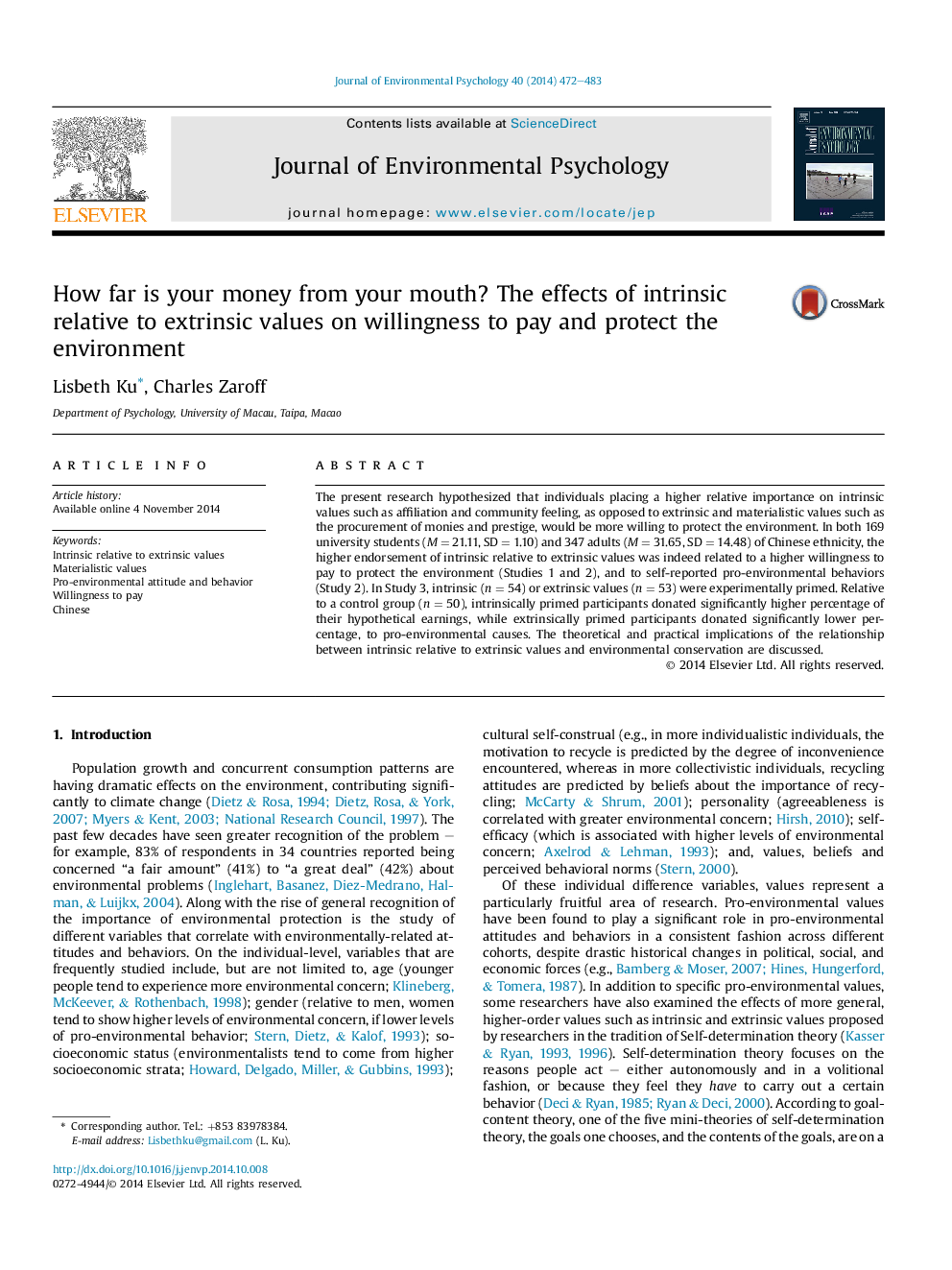| Article ID | Journal | Published Year | Pages | File Type |
|---|---|---|---|---|
| 7245989 | Journal of Environmental Psychology | 2014 | 12 Pages |
Abstract
The present research hypothesized that individuals placing a higher relative importance on intrinsic values such as affiliation and community feeling, as opposed to extrinsic and materialistic values such as the procurement of monies and prestige, would be more willing to protect the environment. In both 169 university students (M = 21.11, SD = 1.10) and 347 adults (M = 31.65, SD = 14.48) of Chinese ethnicity, the higher endorsement of intrinsic relative to extrinsic values was indeed related to a higher willingness to pay to protect the environment (Studies 1 and 2), and to self-reported pro-environmental behaviors (Study 2). In Study 3, intrinsic (n = 54) or extrinsic values (n = 53) were experimentally primed. Relative to a control group (n = 50), intrinsically primed participants donated significantly higher percentage of their hypothetical earnings, while extrinsically primed participants donated significantly lower percentage, to pro-environmental causes. The theoretical and practical implications of the relationship between intrinsic relative to extrinsic values and environmental conservation are discussed.
Keywords
Related Topics
Social Sciences and Humanities
Psychology
Applied Psychology
Authors
Lisbeth Ku, Charles Zaroff,
